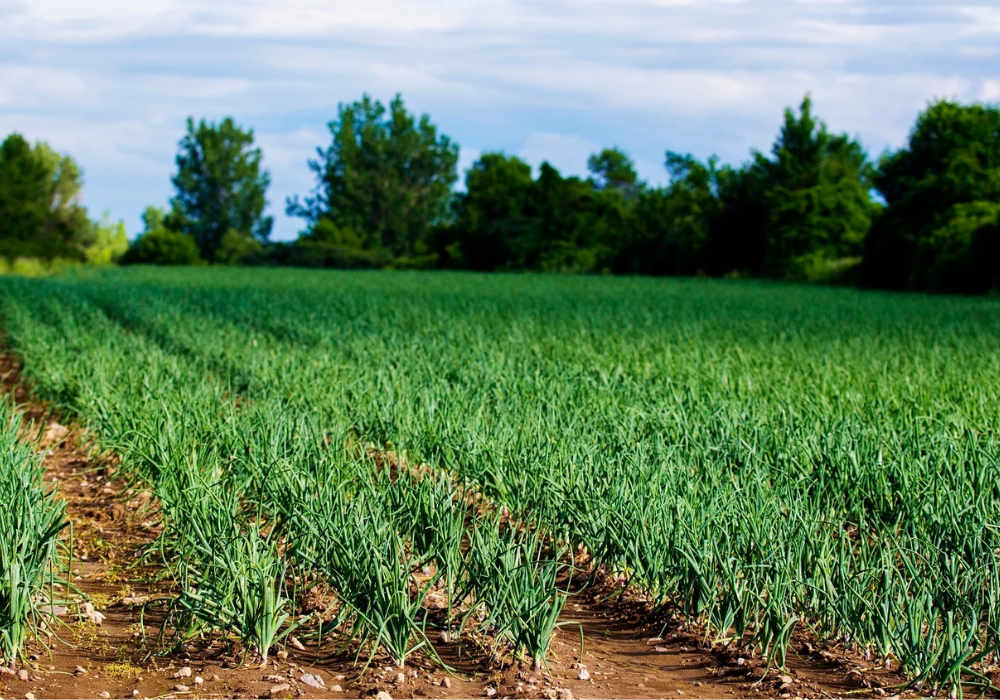The GODAN initiative aims to harness the growing volume of data generated by new technologies to solve long-standing problems in agriculture

The report found that to meet its net-zero target, the UK will require “unprecedented innovation across the economy” (Credit: pxhere)
Open data is being used in agriculture to ensure future prosperity for the world’s food production and guarantee the value of nutrition is maintained.
UN-backed initiative Global Open Data for Agriculture and Nutrition (GODAN) aims to drive global efforts to tackle food security and end world hunger by propagating open data policies in agriculture and nutrition across the planet.
With 795 million people currently suffering from hunger and starvation, GODAN focuses on building high-level support among governments, policymakers, international organisations and business.
GODAN’s executive director Andre Laperrière said the initiative promotes collaboration and co-operation among stakeholders to harness the growing volume of data generated by new technologies to solve long-standing problems, and to benefit farmers and the health of consumers.
“With access to open data, farmers are in a better position to use up-to-date and accurate information to help them make more informed decisions, maximising both crop yield and profit potential,” he added.
“This helps develop a strong infrastructure and helps ensure that there is a sustainable food supply in place for all.”
Five ways GODAN promotes open data in agriculture
GODAN launched in 2013 and has more than 1,000 partners from over 115 countries – across universities, governments, donors, charities and businesses.
It promotes open data in five key areas affecting agriculture and society overall – climate change, farming, agricultural and livestock greenhouse gas emissions, food security, and sustainability.
Climate Change
GODAN believes the Paris Agreement coming into effect was a pivotal moment in helping to achieve a cleaner planet.
It says access to open data has been key to this movement, as well being instrumental in ensuring it is recognised as a sustainability measure to help enable collaboration, underpin innovation and ensure accountability for all parties committed to ending climate change.
Through advocating the use of open data at several key summits and conferences, GODAN is helping provide policymakers and organisations with a platform to drive change forward.
Agriculture and farming
Agriculture and farming are worth $8tn globally and play an integral part in the lives of the planet’s 7.7 billion people.
With a growing population, ever-changing diets and adverse weather conditions, there is no doubt that the industry has come under great pressure in recent years.
As well as advocating for the use of open data, the GODAN Action project has developed a free online course on open data management in agriculture and nutrition.
This has been designed to reach and train a higher number of participants from a wide range of countries, who can use the online resources to study at a time and location convenient for them.
Agricultural and livestock greenhouse emissions
A number of industries are currently attempting to reduce their greenhouse gas emissions as the world attempts to move towards a greener economy.
GODAN says a quarter of global emissions come from the food industry.
More than half the CO2 produced comes from animal products – with beef and lamb alone accounting for 50% of these emissions.

GODAN believes new farming methods are required to reach a resolution and governmental policies need to be put in place to ensure farming practices are safeguarding and restoring land, encouraging agroforestry and improving crop variants.
It aims to use open data to create better innovations that are more environmentally-focused and help farmers to make more informed decisions.
Food security
Along with the Open Data Charter, GODAN launched a guide for governments to open agricultural data in October last year.
Named the Open Up Guide for Agriculture, it aims to help governments prioritise and publish relevant datasets for agricultural development.
It provides guidance for opening datasets in agriculture and focuses on three elements – why open data is important, which data should be opened based on policy perspectives, and which elements should make up a strategy.
GODAN says the guide was created for policymakers who want to inform decision-makers on open data and agriculture to understand how it can make a difference for the agricultural sector and ensure food security.
Sustainability
Through open data, GODAN claims it has been able to shine a light on how sustainable and ethical farming practices can be achieved.
The initiative has helped provide a business model for farmers to learn from so they can better understand how taking advantage of such access can produce improved results.
GODAN says this has been particularly influential in Africa, where farmers are in a better position to feed their families and communities because the information available has given them the knowledge of exactly when the right time is to plant crops.
